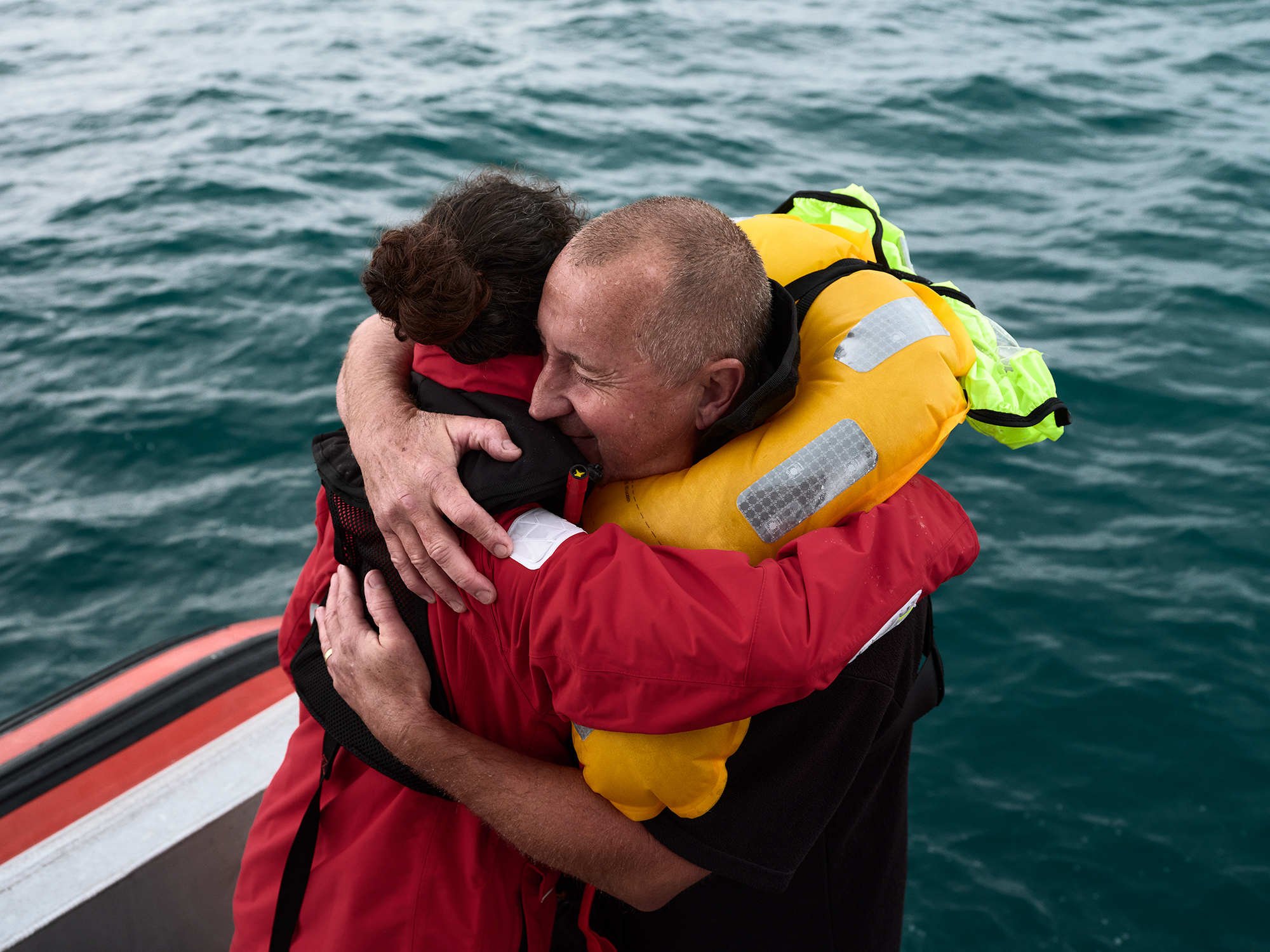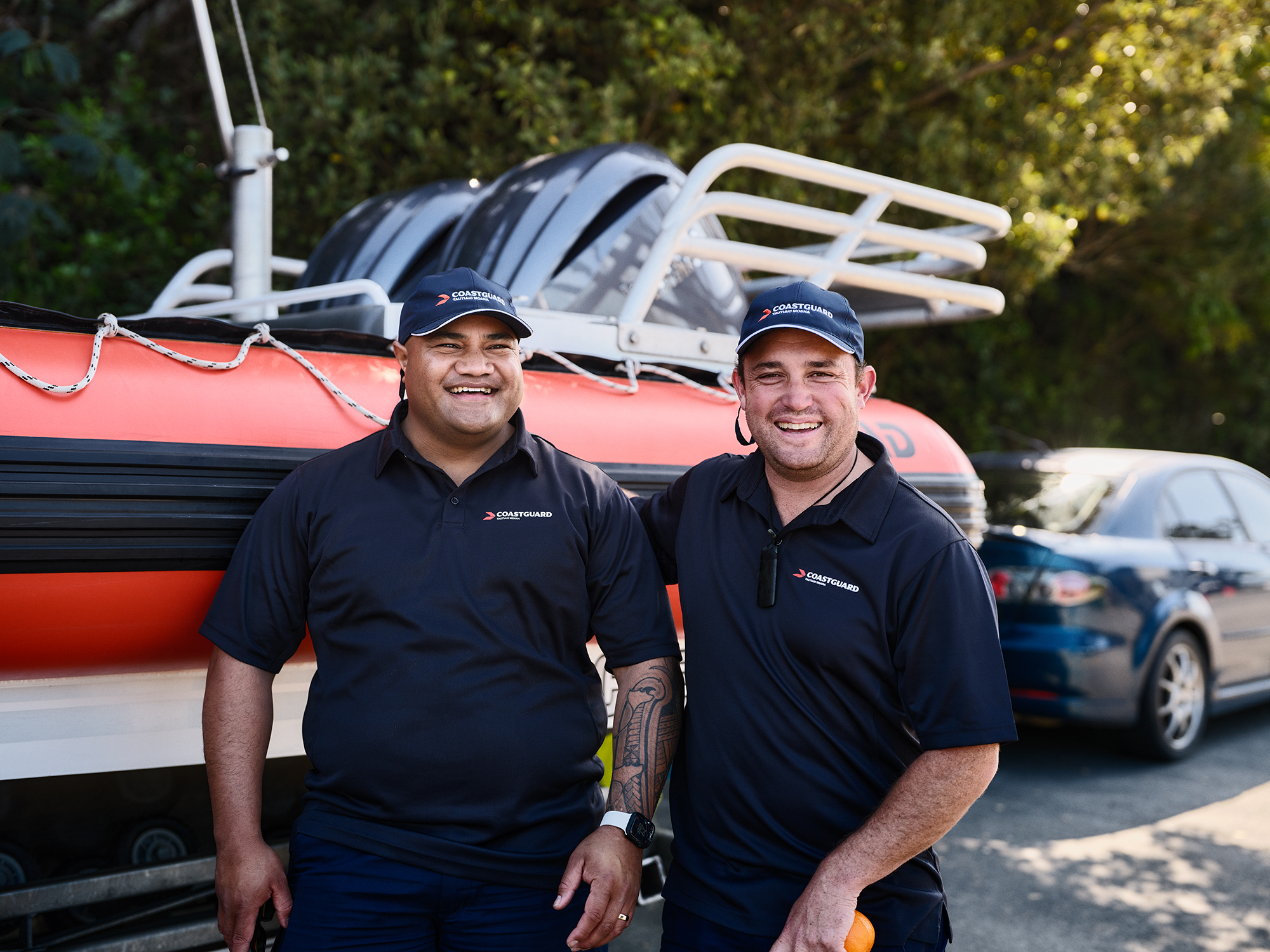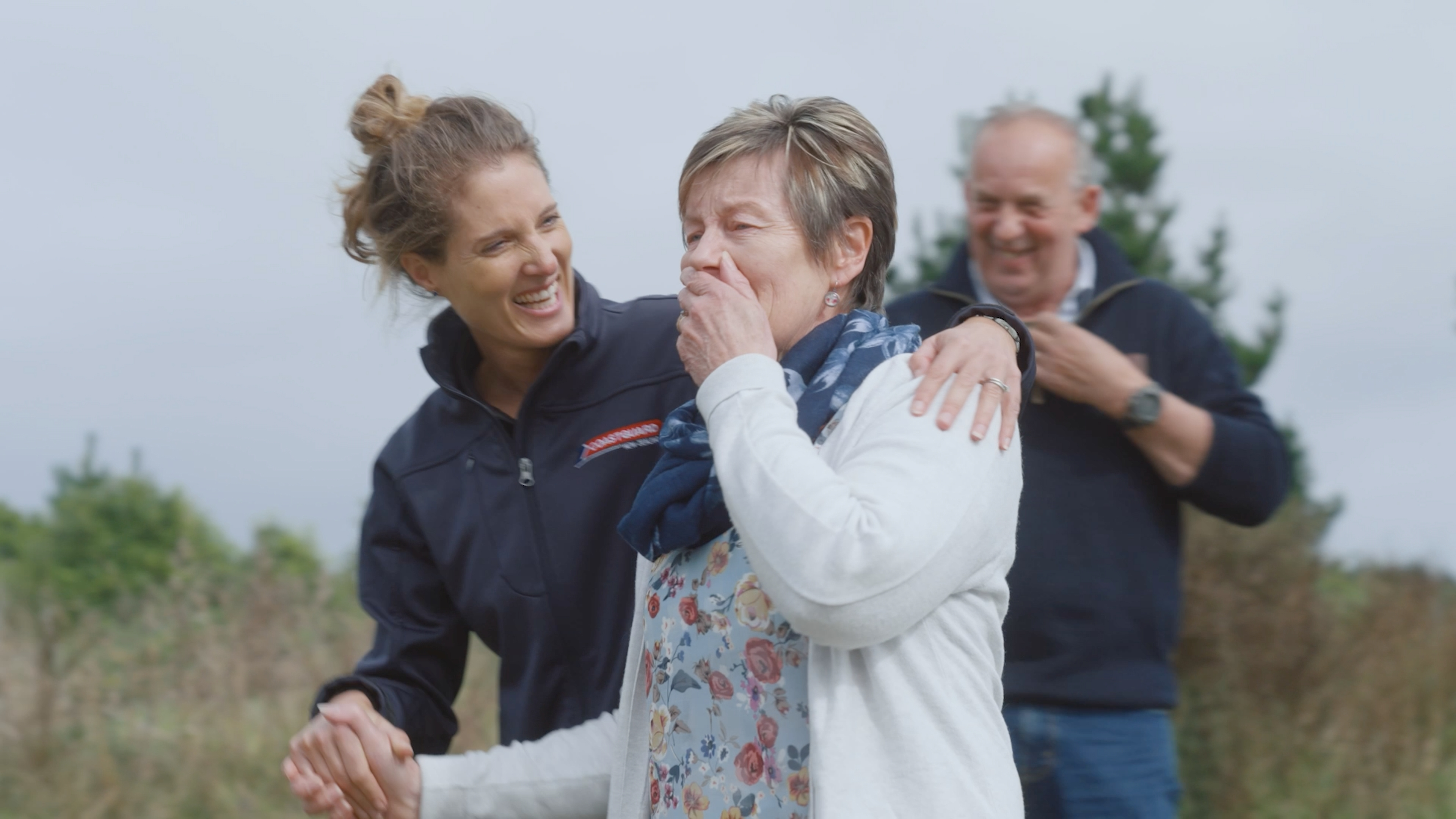New Zealand, 04 December 2023 - In response to an increasing number of preventable drownings on watercraft in New Zealand, Coastguard and Water Safety New Zealand are pleading with Kiwis to wear lifejackets while on the water this summer.
Drowning is the leading cause of recreational death in Aotearoa and according to recent data from Water Safety New Zealandi, craft-related incidents account for 31% of those deaths. In 2022, there were 29i drowning fatalities from watercraft and 21 of the people who died weren’t wearing a lifejacket. The number of drownings in 2022 is a staggering 66% higher than compared with the 10-year average.
Coastguard CEO Callum Gillespie says too many lives are being lost unnecessarily because people aren’t wearing lifejackets.
“A lifejacket has never ruined a day on the water, but not wearing one has destroyed many lives. Drownings are a devastating event for whānau, family and friends and for our incredible volunteers who are on the frontline. These tragic deaths leave a long-lasting impact on our communities.
“We have a simple message for all watercraft users, whether you're on a boat, yacht, kayak, jet ski, SUP - whatever your waka - ‘Just Wear It’. It’s called a lifejacket for a reason and wearing one is the easiest way to keep yourself and others safe while enjoying a fun day out on the water.”
Despite the sobering statistics, researchii shows more than a quarter (27%) of boaties surveyed aren’t ensuring everyone on board has a lifejacket that fits them, and while 86% of children are wearing a correctly fitting lifejacket, a third of adults (33%) are not wearing them the entire time they’re on the water.
As to why boaties are not wearing their lifejackets, 41% say they’re not concerned with the potential for drownings to occur, 46% say their boat/vessel can handle rough conditions OK and a third (33%) say that wearing lifejackets is inconvenient and uncomfortable. A further 33% say they simply did not want to, and a quarter say it’s too expensive to buy more lifejackets.
This data is especially concerning when Water Safety NZ statisticsiii suggests 20% of boaties don’t check weather conditions before venturing out on the water and few New Zealanders are strong enough swimmers should they get in trouble. A third (30%) of New Zealanders are unable to swim or are weak swimmers, and when it comes to swimming in the ocean that increases to 44% unable to swim or consider themselves weak swimmers.
According to Coastguard, in the event of unexpectedly entering the water, people may have to tread water for at least 40 minutes before help arrives. This could be hours in more remote locations. Without a lifejacket, this is incredibly difficult and drastically reduces your chance of survival.
This was the case for a Nelson family of four whose boat was swamped by two massive waves. With their lifejackets on, they swam for over an hour to rocks after being unable to raise an alarm, and despite briefly losing sight of each other in the challenging swim. They were eventually rescued by Coastguard and treated for hypothermia, their properly fitted lifejackets playing a crucial role in their survival.
“We were very grateful to see the Coastguard volunteers. Very exhausted, very cold and very appreciative,” survivor Jackie said.
While Water Safety data suggests most boaters (95%) and jet skiers (99%) agree that wearing a lifejacket should be mandatory everywhere in New Zealand, this currently isn’t the case.
At present, lifejacket bylaws vary from region to region, with many only stipulating that lifejackets are to be available for each person onboard and worn when instructed by the skipper or during times of heightened risk such as crossing a bar. However, Coastguard and Water Safety NZ believe it should be mandatory for everyone to wear a lifejacket on vessels 6m and under while underway and is advocating the Government to act.
Water Safety New Zealand CEO Daniel Gerrard says: “Safety on the water isn't just about personal responsibility; it's about setting a standard of care for ourselves and for those around us. Our message is clear: wearing a lifejacket isn't just a good practice, it's a vital step in protecting lives. Let's shift the mindset from seeing lifejackets as optional to viewing them as essential. Every lifejacket worn is a potential tragedy averted, and we hope to see a day when not wearing one is as unthinkable as not wearing a seatbelt in a car. This summer, let’s make ‘Just Wear It’ not just a slogan, but a universal practice on our waters.”
Coastguard New Zealand CEO Callum Gillespie adds: “Overall, New Zealanders are showing a high degree of complacency when it comes to the water, but this ‘she’ll be right’ attitude is literally killing people. No one heads out expecting to get into trouble, but the fact we responded to 2,596 incidents last year shows the unexpected happens all too often.
“We have a warm, dry and windy summer ahead, so we’re expecting it to be busy out there. We really urge all Kiwis to ‘just wear it’ and take better care on the water, and always wear a lifejacket.”
If you need a new lifejacket or it’s time to upgrade your old one, Coastguard's hitting the road across Aotearoa from December through to February with Old4New. Find out when the Old4New van will be in your town at old4new.coastguard.nz
ENDS
About Coastguard Tautiaki Moana
Coastguard is a charity powered by over 2,000 volunteers in communities around Aotearoa New Zealand. We’re here for all water enthusiasts, from boaties and kayakers to paddleboarders – whatever your waka. Our volunteers who crew rescue vessels, fly in the sky in our search aircraft, and are the ears and voice at the end of the radio, have been dedicated to saving lives for over 150 years.
Last year, our highly trained and skilled volunteers gave 273,269 hours to help Kiwis make the most out of their time on the water, safely and with confidence. We assisted more than 6,300 people home, rescued 142, and saved six lives. We're the crew you can turn to for help - big or small – whether for a simple tow back to shore, sharing knowledge and advice through educational courses, or jumping into action on an urgent search and rescue mission.
We're a charity with 66% of our operating income coming from donations, membership, sponsorship, and grants. The remaining 34% comes from central government funding.
About Water Safety New Zealand
Water Safety New Zealand is passionately dedicated to enhancing water safety across Aotearoa, New Zealand. While we recognise that New Zealand's drowning rate has been higher than that of countries like Australia, Canada, and the UK, we see this as a call to action rather than a setback.
We are driven by the belief that every life is precious, and we are committed to turning the tide on these statistics. Our mission is to create a safer environment for individuals, families, and communities by supporting them to gain better knowledge and skills setting them up to enjoy New Zealand's beautiful waters. To achieve this, Water Safety New Zealand collaborates with a wide range of water safety organisations, individuals, and the Kiwi public through focused leadership, advocacy, and education.
Our primary aim is to significantly reduce drowning incidents and related injuries in New Zealand. We strive to create a culture of safety and responsibility around water, ensuring everyone can enjoy and respect our nation's stunning aquatic environments safely.
Notes to editor:
- Coastguard’s Old4New Lifejacket Upgrade is a nationwide campaign encouraging Kiwis to bring in any old, damaged or worn lifejackets and upgrade them for brand new, fit- for-purpose Hutchwilco lifejackets at a heavily discounted price. Since the inception of Old4New, thousands of old or damaged lifejackets have been traded in and upgraded, meaning thousands of Kiwis are now safer out on the water.
- Coastguard’s Old4New Lifejacket Upgrade campaign will be visiting 80 locations throughout summer. Visit old4new.coastguard.nz for more information.
- The number of preventable drownings in New Zealand have increased 15% from 77 to 94 fatalities over the past ten years (Drownbase, WSNZ).


